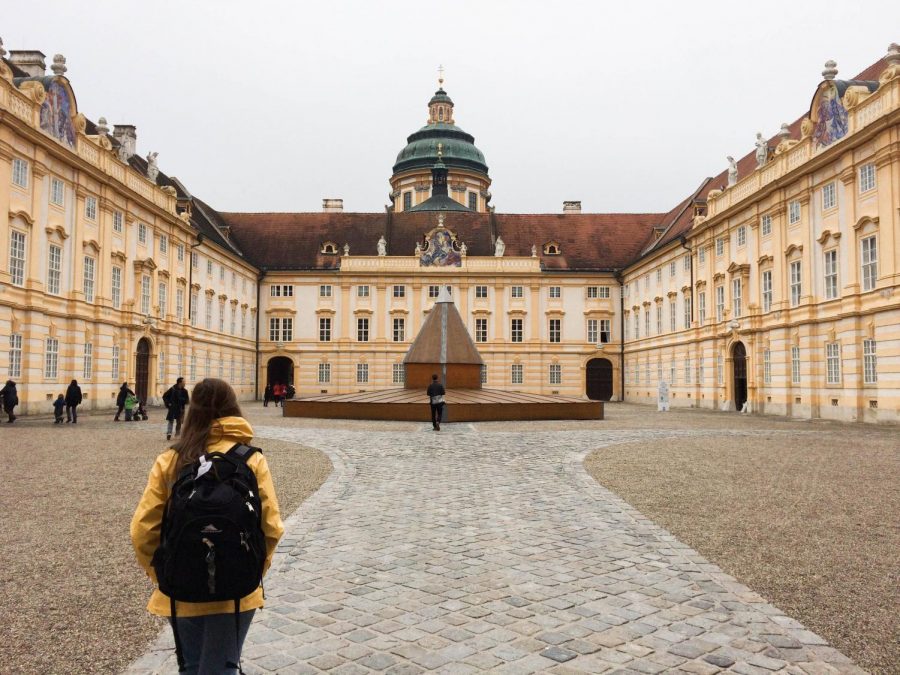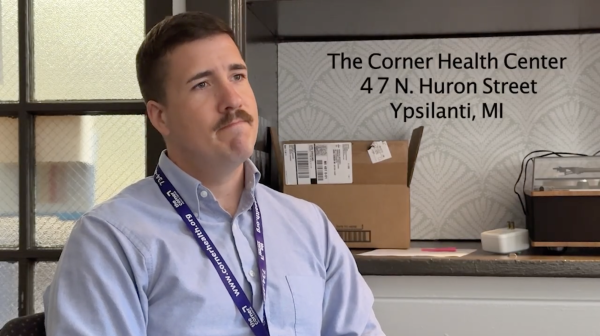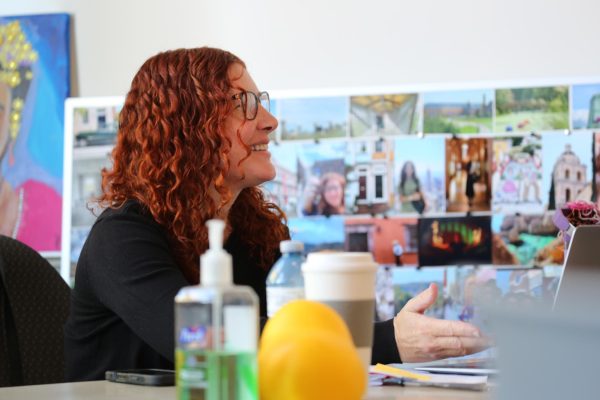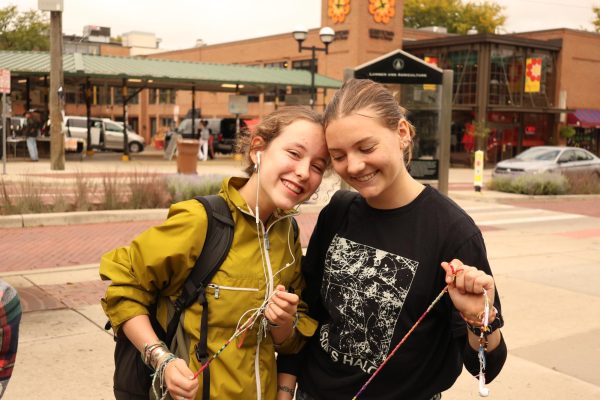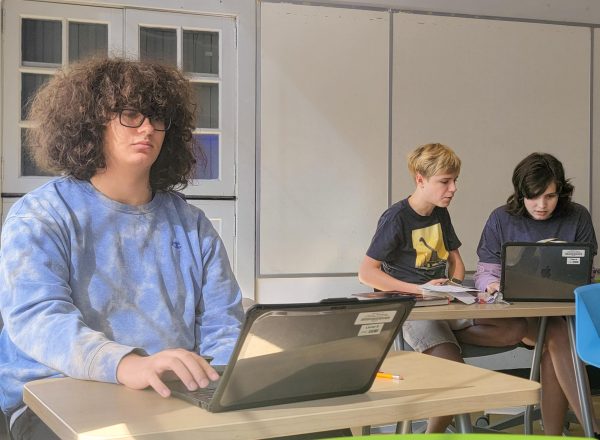You Don’t Have A Schengen Visa
Confusion set in for Anna* when the woman at the check-in counter wouldn’t stop looking through her passport. As she stood, bewildered in the Detroit airport, she heard the same six words over and over again.
“You don’t have a Schengen Visa.”
Anna didn’t know what a Schengen Visa was, but after her teacher called the travel agency, they realized: due to her Indian passport, she would be unable to travel with her choir to Austria and the Czech Republic. She and her teacher continued to talk to the agency on the phone.
Nearly an hour later, Josie*, who had been sitting at the gate waiting to leave, was brought back up with another teacher. Though somehow she had gotten through check in, with her Filipino passport and no Schengen Visa, she wouldn’t be able to get into Germany. Josie, a sophomore, and Anna, a senior, were left standing in the airport as the rest of their choir boarded their flight to Amsterdam.
“I was very sad,” Josie said. “On the way down with [my chaperone] to the baggage claim, I saw [my teacher] and Anna. While [my teacher] was saying, ‘I’m so so so sorry,’ I was tearing up. I felt really bad. But at the same time, while we were still at the airport, Anna and I just hugged each other, and we were like, ‘We’re going to do this, we can get through this together.’ If it was just me, I wouldn’t have done all of this.”
The next day, their two families headed to the German Consulate in Chicago to apply for an emergency Schengen Visa.
The Schengen Visa is required for passport holders from 110 largely Asian and African countries, including the Philippines and India, if said people wish to travel to any of 26 European countries. Included on that list are Austria, Germany, and the Czech Republic: the three countries in which their choir would be traveling.
Josie’s family had asked multiple times in advance if she would need a visa — every time, they were told that they would not. The company assured them that they would be fine, and would be able to travel successfully.
The next 72 hours were a whirlwind for the two families. They first were directed to a consulate in Metro Detroit, which ended up being nonexistent and a mistake at fault of the travel agency. They rushed to Chicago, only to find the consulate closed. They made an appointment for the next day as early as possible with their teacher’s contact at the consulate.
The next morning, they arrived at the consulate to find hostile and confused staff. Once they were admitted inside, complete paperwork in hand, the families were met with frustrated employees, claiming that their paperwork was incorrect.
“The people at the consulate were screaming at us and telling me that this was all my fault,” Anna said. “They were talking through this PA system, so everybody in the room could hear them screaming at us. It was a giant power play, because then they started talking in German and they were like, ‘just do it,’ and we got our visas in 10 minutes.”
The agency rescheduled their flights, and after arguments, extra fees, and frustrated phone calls, Josie and Anna finally boarded their flight from Chicago to Amsterdam, officially registered as unaccompanied minors.
Anna and Josie hugged each other as they boarded their flight, triumphant and thrilled at the success of their visas and their journey. On the plane, a flight attendant approached them and asked them about their story. On their way off of the plane, she gave them a notebook with a letter inside, detailing how sorry she was that they had to endure all of the insanity of getting their visas.
“It said, ‘I’m happy that you guys are on your way to Vienna right now, you guys should enjoy yourselves and be proud of everything that you’ve done,’” Josie said, laughing. “It was so cute.”
They stayed in the Amsterdam airport for five hours, mostly sleeping in the room reserved for unaccompanied minors. After a short flight to Vienna, they endured one final debacle involving the travel agency: they hadn’t provided Josie and Anna with the name of the person that would be picking them up. They spent nearly half an hour speaking and arguing in German, trying to sort it out.
Exhausted, they were finally in Vienna, Austria. They were taken to the Hotel Ananas, and relaxed in their rooms, waiting for the rest of their choir to arrive. When they arrived at dinner, they were greeted with applause and showered with hugs.
They spent the remaining five days of the adventure performing and exploring with the rest of the group.
Was it worth it?
They arrived in time to sing the two biggest concerts: one, the night they got there, at Vienna’s Karlskirche; the other at Prague’s St. Nicholas cathedral, where the choir sang an Easter Mass.
They missed three days of adventures with their friends. They missed visiting Dachau concentration camp, walking around and singing in the beautiful Melk Abbey, and the “Sound of Music” tour of Salzburg. They missed three different concerts, each in a magnificent cathedral with its own unique sound.
“I think it was [worth it],” Josie said. “Although it was a lot to go through, when we got there it was pretty worth it. [The experience] made me stronger.”
“I don’t think you can ever replicate that experience of traveling with your friends, so I guess in that sense it was worth it, but compared to the amount of trouble my parents went through, I don’t really think it was,” Anna disagreed. “I feel like it tampered with my whole experience.”
To this day, they are waiting on reparations from the travel company. Josie and Anna focus on moving forward, while their parents put together a complaint to send to the Better Business Bureau and attempt to get their money back for the three days of the trip that their daughters missed.
Despite anger, frustration, tears, and exhaustion, both girls agreed that they gained important knowledge from their Schengen Visa experience.
“I definitely gained an appreciation for how important family is,” Anna said. “My dad doesn’t live here anymore; he lives in California because of his job, so it was just my mom and me and both of Josie’s parents. Having that bond with your parents is so important.”
“After I came back from Austria, every problem that I saw that was surfacing in my life, it just seemed so small compared to what had just happened,” she continued.
*names have been changed to protect anonymity




